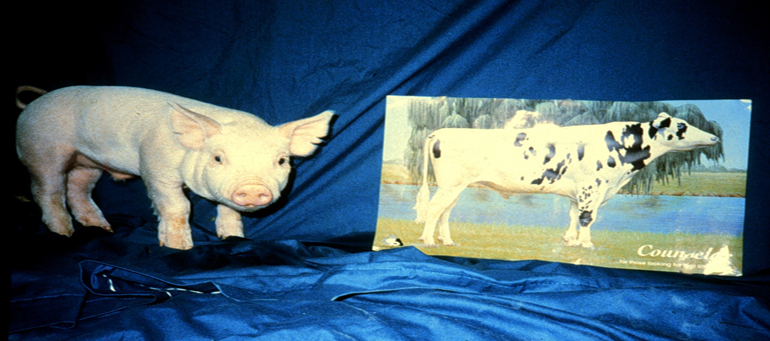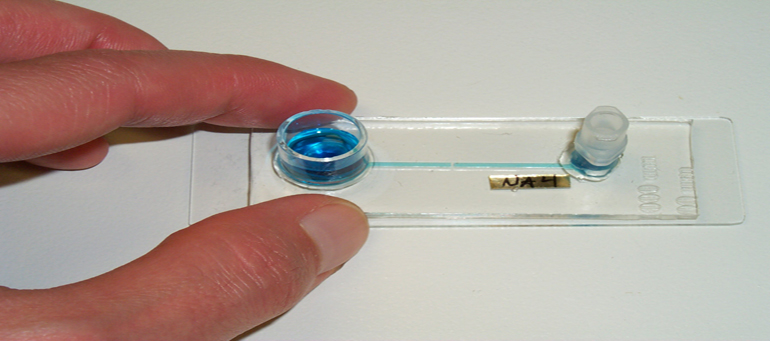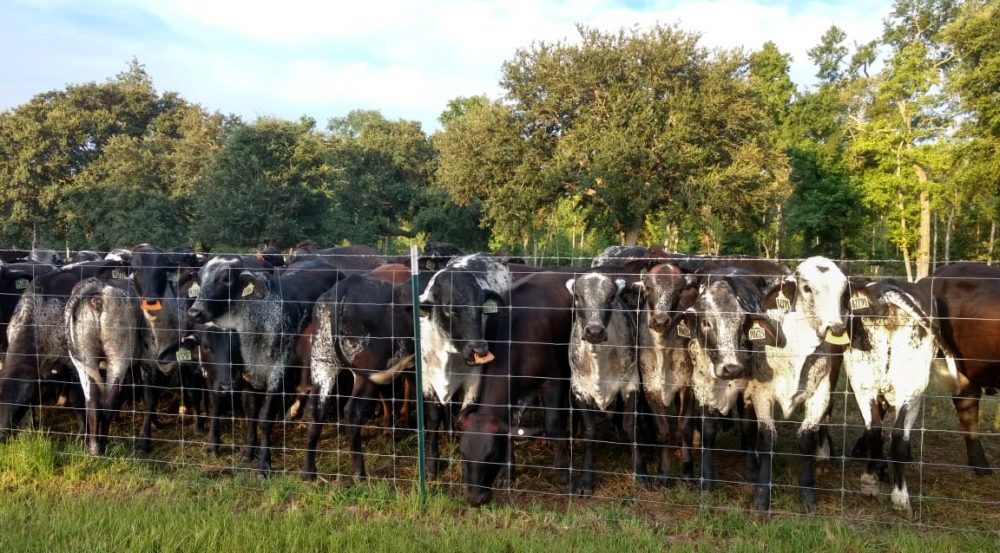
Research activities can be divided into six areas of research. Generally, the work can be described as large animal reproductive physiology with an emphasis on 1) production of transgenic livestock, particularly swine and cattle, with improved production characteristics; 2) molecular and cellular mechanisms involved in embryonic cell development/ differentiation and early embryonic gene expression; 3) genetic evaluation, molecular gene mapping in livestock, early embryonic genotype evaluation; 4) development of remote sensing and microfludic handling methods for mammalian embryos; 5) the use of stem cells (adult and embryonic) for tissue engineering and cell-base therapies and 6) the use assisted reproductive technologies (in vitro maturation, in vitro fertilization, embryo culture, non-invasive embryo evaluation and embryo transfer) to improve livestock and food production. Long term goals are to 1) identify genes that regulate reproduction, lactation and growth; 2) develop methodologies in embryos to edit, transfer and utilize these genes for the genetic improvement of livestock; and 3) devise strategies for using stem cells for cell and tissue replacement.
Area 1) Production of transgenic livestock, particularly swine and cattle, with improved production characteristics
Current Projects: i) genetic alteration of milk in cattle and swine; ii) repairing genetic diseases in cattle using CRISPR/Cas 9; iii) production of animal models for musculoskeletal and neuro-degenerative diseases; iv) production of antibodies and biopharmaceticals in milk of livestock; iv) production of recombinant immunogenic proteins to create multivalent subunit vaccines for zoonotic diseases; v) MAC-T cells as a tool to examine genome editing using clustered regularly interspaced short palindromic repeats (CRISPR).
Area 2) Molecular and cellular mechanisms involved in embryonic cell development/ differentiation and early embryonic gene expression
Current projects: i) Molecular adaptation during in vitro adipogenesis and osteogenesis of porcine mesenchymal stem cells: dynamics of pathways, biological processes, and gene networks; ii) changes in the cattle cervical transcriptome between oestrus and metestrus.
Area 3) Genetic evaluation, molecular gene mapping in livestock, early embryonic genotype evaluation
Currrent projects: i) developing a Girolando reference family to identify specific genes influencing tropical milk production; ii) identification of individual animals with specific beta-casein and alpha-lactalbumin variants.
Area 4) Development of remote sensing and microfludic handling methods for mammalian embryos
Currrent projects: i) non-invasive analysis of embryo metabolites using nuclear magnetic resonance; ii) metabolic profiling of male and female bovine embryos using nuclear magnetic resonance (NMR) imaging; iii) embryo sugar consumption during in vitro development; iv) integration of microfluidics in animal in vitro embryo production; v) Use of a novel polydimethylsiloxane well insert to successfully mature, culture and identify single porcine oocytes and embryos.
Area 5) the use of stem cells (adult and embryonic) for tissue engineering and cell-base therapies
Currrent projects: i) integrating image-based design and 3D biomaterial printing to create patient specific devices within a design control framework for clinical translation; ii) design control for clinical translation of 3D printed modular scaffolds; iii) computer-aided designed, 3-dimensionally printed porous tissue bioscaffolds for craniofacial soft tissue reconstruction; iv) treatment of severe porcine tracheomalacia with a 3-dimensionally printed, bioresorbable, external airway splint; v) adipose-derived mesenchymal stem cells enhance healing of mandibular defects in the ramus of swine; vi) a porcine model for repair of segmental long bone defects using 3-D printed scaffolds; vii) behavior of porcine mesenchymal stem cells on a collagen-glycosaminoglycan hydrogel scaffold for bone and cartilage tissue engineering.
Area 6) The use assisted reproductive technologies (in vitro maturation, in vitro fertilization, embryo culture, non-invasive embryo evaluation and embryo transfer) to improve livestock and food production
Current projects: i) comparison of three different methods to select high sperm quality effects of liposomes on sperm motility and DNA binding efficiency; ii) risk of transmission of bovine leukosis virus (BLV) using seropositive bulls for in vitro fertilization embryo production; iii) comparison of NCSU-23 and alpha-minimal essential media in the development of isolated porcine preantral follicles in vitro; vi) comparison of in vitro embryo production in panama using Holstein oocytes with bos indicus sexed semen from donors in different locations: field data; v) comparison of pregnancy rates of fresh in vitro – produced bos indicus embryos produced in the same laboratory but collected and transferred in Panama or the Dominican Republic; vi) follicular non-invasive markers of oocyte meiotic competence during in vitro culture: relationship between follicular dynamics and oocyte maturation; vii) effects of rumen-protected methionine on the lipid profiles of the preimplantation embryo and endometrial tissue of Holstein cows.


